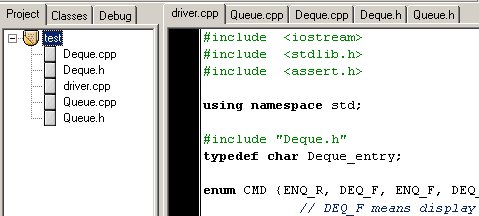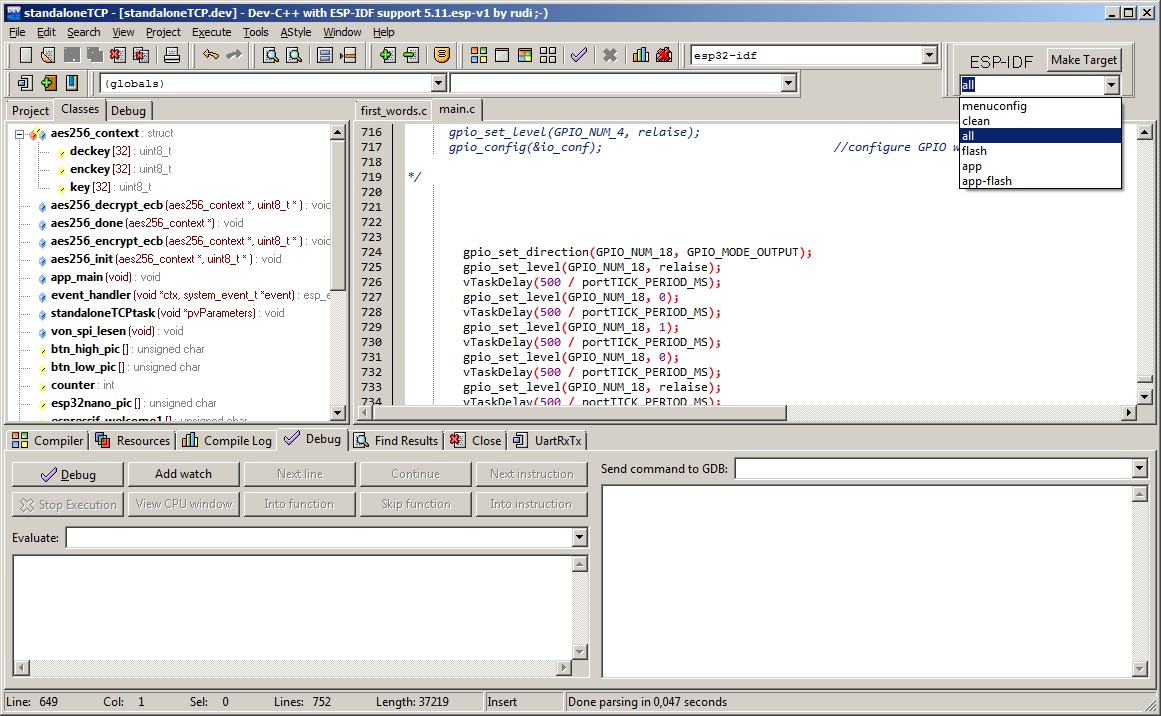Dev C Commands
- C Programming Tutorial
- C Programming useful Resources
C/C for Visual Studio Code (Preview) C/C support for Visual Studio Code is provided by a Microsoft C/C extension to enable cross-platform C and C development on Windows, Linux, and macOS. The extension is still in preview and our focus is code editing, navigation, and debugging support for C and C code everywhere that VS Code runs.
As you're using Windows, a simple way you can do this is by changing the console window size with the batch command: mode con: cols=150 lines=50. Cols adjusts width, lines adjusts height. You may choose to call this with system to set the console size. Nov 10, 2016 Dev-C is an integrated development environment (IDE) for the C programming language. It presents a feature-rich environment, tools for writing and debugging, as well as a compiler to provide you with all the tools necessary to program software in C. The program is a fork of the Bloodshed Dev-C environment, designed for advanced programmers looking to create applications.
- Selected Reading
You have seen the basic structure of a C program, so it will be easy to understand other basic building blocks of the C programming language.
Tokens in C
A C program consists of various tokens and a token is either a keyword, an identifier, a constant, a string literal, or a symbol. For example, the following C statement consists of five tokens −
The individual tokens are −
Semicolons

In a C program, the semicolon is a statement terminator. That is, each individual statement must be ended with a semicolon. It indicates the end of one logical entity.
Given below are two different statements −

Comments
Comments are like helping text in your C program and they are ignored by the compiler. They start with /* and terminate with the characters */ as shown below −
You cannot have comments within comments and they do not occur within a string or character literals.
Identifiers
A C identifier is a name used to identify a variable, function, or any other user-defined item. An identifier starts with a letter A to Z, a to z, or an underscore '_' followed by zero or more letters, underscores, and digits (0 to 9).
C does not allow punctuation characters such as @, $, and % within identifiers. C is a case-sensitive programming language. Thus, Manpower and manpower are two different identifiers in C. Here are some examples of acceptable identifiers −
Keywords
The following list shows the reserved words in C. These reserved words may not be used as constants or variables or any other identifier names.

| auto | else | long | switch |
| break | enum | register | typedef |
| case | extern | return | union |
| char | float | short | unsigned |
| const | for | signed | void |
| continue | goto | sizeof | volatile |
| default | if | static | while |
| do | int | struct | _Packed |
| double |
Whitespace in C
Dev C++ Programs
A line containing only whitespace, possibly with a comment, is known as a blank line, and a C compiler totally ignores it.
Whitespace is the term used in C to describe blanks, tabs, newline characters and comments. Whitespace separates one part of a statement from another and enables the compiler to identify where one element in a statement, such as int, ends and the next element begins. Therefore, in the following statement −
there must be at least one whitespace character (usually a space) between int and age for the compiler to be able to distinguish them. On the other hand, in the following statement −
Dev Commands Company Of Heroes
no whitespace characters are necessary between fruit and =, or between = and apples, although you are free to include some if you wish to increase readability.